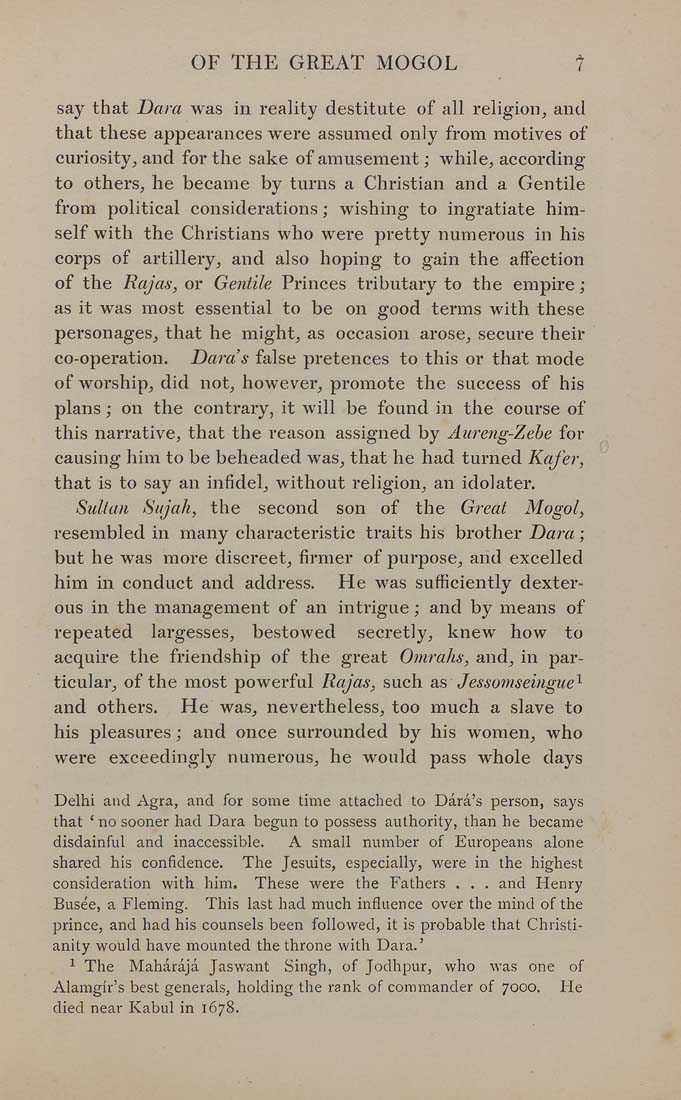OF THE GREAT MOGOL t
say that Dara was in reality destitute of all religion, and
that these appearances were assumed only from motives of
curiosity, and for the sake of amusement; while, according
to others, he became by turns a Christian and a Gentile
from political considerations; wishing to ingratiate him¬
self with the Christians who were pretty numerous in his
corps of artillery, and also hoping to gain the affection
of the Rajas, or Gentile Princes tributary to the empire;
as it was most essential to be on good terms with these
personages, that he might, as occasion arose, secure their
co-operation. Dara's false pretences to this or that mode
of worship, did not, however, promote the success of his
plans; on the contrary, it will be found in the course of
this narrative, that the reason assigned by Aureng-Zebe for
causing him to be beheaded was, that he had turned Kafer,
that is to say an infidel, without religion, an idolater.
Sultan Sujah, the second son of the Great Mogol,
resembled in many characteristic traits his brother Dara;
but he was more discreet, firmer of purpose, and excelled
him in conduct and address. He was sufficiently dexter¬
ous in the management of an intrigue; and by means of
repeated largesses, bestowed secretly, knew how to
acquire the friendship of the great Omrahs, and, in par¬
ticular, of the most powerful Rajas, such as Jessomseingue^
and others. He was, nevertheless, too much a slave to
his pleasures ; and once surrounded by his women, who
were exceedingly numerous, he would pass whole days
Delhi and Agra, and for some time attached to Dara's person, says
that ' no sooner had Dara begun to possess authority, than he became
disdainful and inaccessible. A small number of Europeans alone
shared his confidence. The Jesuits, especially, were in the highest
consideration with him. These were the Fathers . . . and Henry
Busee, a Fleming. This last had much influence over the mind of the
prince, and had his counsels been followed, it is probable that Christi¬
anity would have mounted the throne with Dara.'
^ The Maharaja Jaswant Singh, of Jodhpur, who was one of
Alamgir's best generals, holding the rank of commander of 7000. Pie
died near Kabul in 1678.
|








